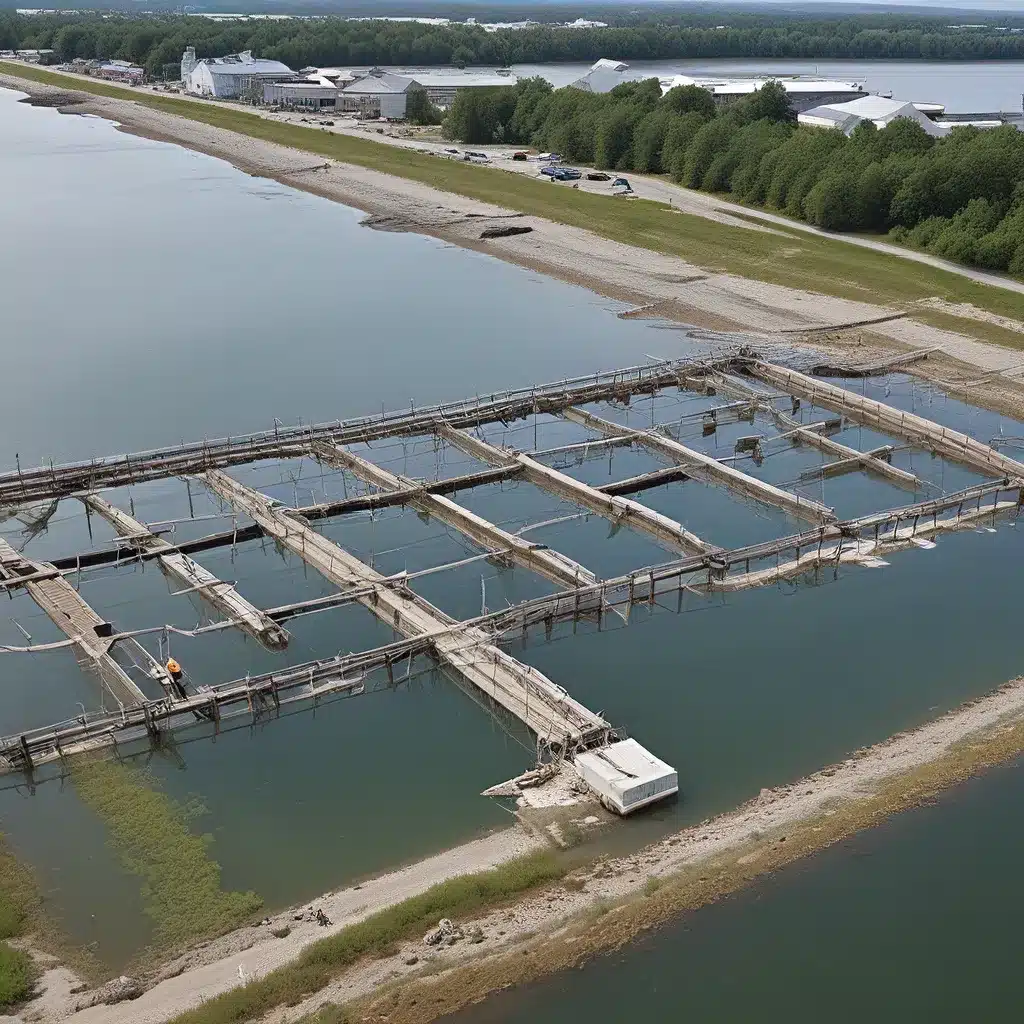
Navigating the Turbulent Tides of Climate Change
As the waves of climate change continue to crash against our shores, water treatment professionals find themselves navigating uncharted waters. The once-predictable patterns of precipitation, water levels, and water quality have given way to a new reality – one where the unexpected has become the norm. But fear not, my fellow aquatic adventurers, for within this chaos lies an opportunity to redefine the way we approach water treatment during emergencies.
Weathering the Storm: Assessing Climate Risks
In the face of climate change, communities are grappling with a myriad of water-related challenges, from rising sea levels and intensified flooding to prolonged droughts and water scarcity. Florida’s Adaptation Planning Guidebook provides a valuable roadmap for assessing these risks, urging us to consider the potential impacts on our water infrastructure, water quality, and the surrounding environment.
Imagine a coastal town where the once-reliable water treatment plant suddenly finds itself submerged, its vital systems struggling to keep up with the relentless storm surges. Or picture a rural community, its groundwater supply dwindling as the drought stretches on, forcing them to seek alternative sources. These scenarios, once unthinkable, are now all too real.
Riding the Waves of Resilience
But it’s not all doom and gloom, my friends. As the wise say, “Necessity is the mother of invention.” And in the face of these daunting challenges, water treatment professionals are stepping up to the plate, embracing innovative strategies to enhance the resilience of their systems.
The City of Philadelphia’s Climate-Resilient Design Guidance offers a shining example, highlighting the importance of incorporating green infrastructure into water management plans. By leveraging the power of nature, communities can harness the natural filtration and stormwater management capabilities of wetlands, rain gardens, and permeable surfaces, reducing the strain on their water treatment facilities during extreme weather events.
Weathering the Storm: Enhancing Emergency Preparedness
But resilience is not just about physical infrastructure; it’s also about preparedness and adaptability. The EPA’s adaptation strategies emphasize the need for comprehensive emergency planning, urging water treatment professionals to anticipate and plan for a wide range of climate-related scenarios.
Imagine a water treatment plant that has weathered the storm, its systems still intact, but now facing a surge of contaminated floodwaters. By having a well-rehearsed emergency response plan in place, the facility can quickly pivot, adapting its treatment protocols to handle the unique challenges posed by the situation.
Embracing the Tides of Change
As we navigate these uncharted waters, it’s important to remember that true resilience lies not in resisting the tide, but in learning to flow with it. Water treatment professionals must be willing to embrace the tides of change, constantly seeking new ways to adapt and innovate.
At Inland Waters Inc., we are at the forefront of this aquatic transformation, working tirelessly to equip our clients with the knowledge and tools they need to weather the storms of climate change. From cutting-edge water treatment technologies to comprehensive emergency preparedness planning, we are committed to helping communities stay afloat in these turbulent times.
Charting a Course for the Future
As we peer into the horizon, the future may seem uncertain, but it is also brimming with possibility. By harnessing the power of collaboration, technology, and a deep understanding of our water systems, we can navigate these treacherous tides and emerge stronger than ever before.
So, let us raise a glass of clean, resilient water to the water treatment professionals who are leading the charge, and to the communities that are embracing the tidal transformations that lie ahead. For together, we can weather any storm and ensure that our precious water resources remain the lifeblood of our communities for generations to come.


